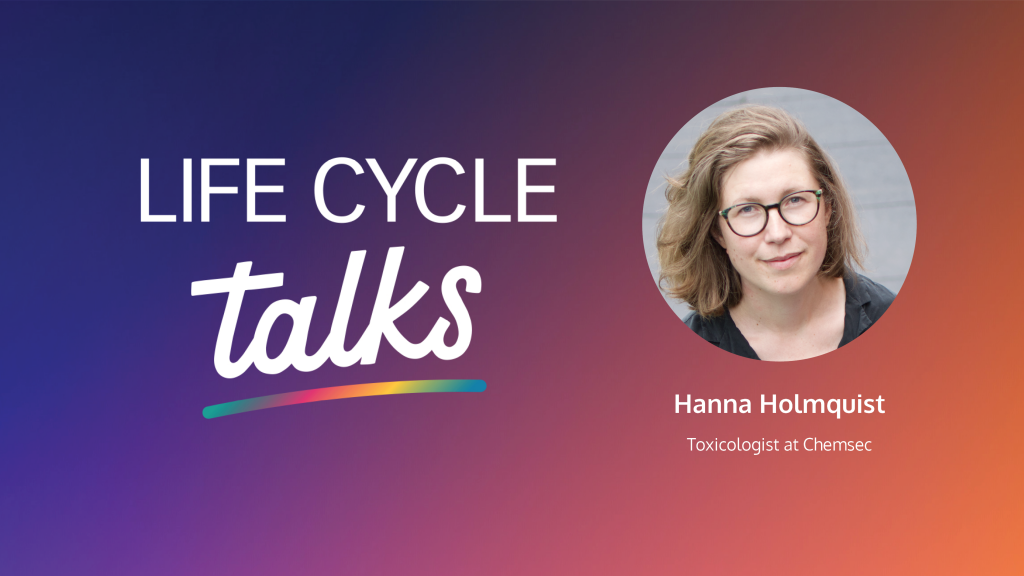“The holistic approach and systems perspective are very important for sustainable development”
Tuesday, 17 December, 2024
 Join us for the next Life Cycle Talks with Hanna Holmquist, Toxicologist at Chemsec. In her upcoming talk, Hanna Holmquist will talk about how chemical footprints can generate important insights about life cycle ecotoxicity and human toxicity potential impacts.
Join us for the next Life Cycle Talks with Hanna Holmquist, Toxicologist at Chemsec. In her upcoming talk, Hanna Holmquist will talk about how chemical footprints can generate important insights about life cycle ecotoxicity and human toxicity potential impacts.
In anticipation of the talk, we had the opportunity to chat with Hanna Holmquist and learn more about her work and the insights she will share.
Can you describe your research and key findings?
“My doctoral project was about the substitution of PFAS in textile applications. One of our main aims was to include life cycle assessment in the alternatives assessments. To make this possible we derived an assessment framework for the inclusion of PFAS in a life cycle impact assessment, as that was a necessary benchmark for the alternatives assessment. In later years the research has included application of LCA in various case studies, for example in Green Chemistry process developments and in SSbD related methods development.”
What motivated you to pursue research related to the life cycle perspective?
“I believe that the holistic approach and systems perspective are very important for sustainable development. Life cycle thinking is key to make sure decisions about products, processes or services do not lead to unacceptable tradeoffs in time and space, or between different types of impacts. There is such a great potential in the combined perspectives from chemical risk assessment and LCA and I wanted to learn more about that and, hopefully, contribute to the progress of methodologies to improve decision support.”
What impact do you hope your research will have?
“I hope that the research we do will lead to the earlier inclusion of ecotoxicity and human toxicity considerations for the full life cycle of a product or system when new products, processes and materials are developed or when those are improved.”
Why do you believe the life cycle perspective plays an important role in research?
“To me it is about ethics. In consumption we must take responsibility not only for potential impacts at the site of the final product or for its user. We need to consider all manufacturing steps and all chemicals in the system. We must also always include the products end-of-life to ensure that is not where hazardous chemicals are emitted or re-circulated in a way that create unacceptable risk, not the least now in a transition to a circular economy.”
Life Cycle Talks with Hanna Holmquist
The talk takes place on 24 January 2025, 10:00-10:30 CET, online via Zoom.
Title: Can Chemical Footprints Provide Decision Support to Reduce Chemical Risks?
About Life Cycle Talks
Life Cycle Talks is a series of talks presenting the research front to keep you up to date with the science and application of the life cycle perspective.
